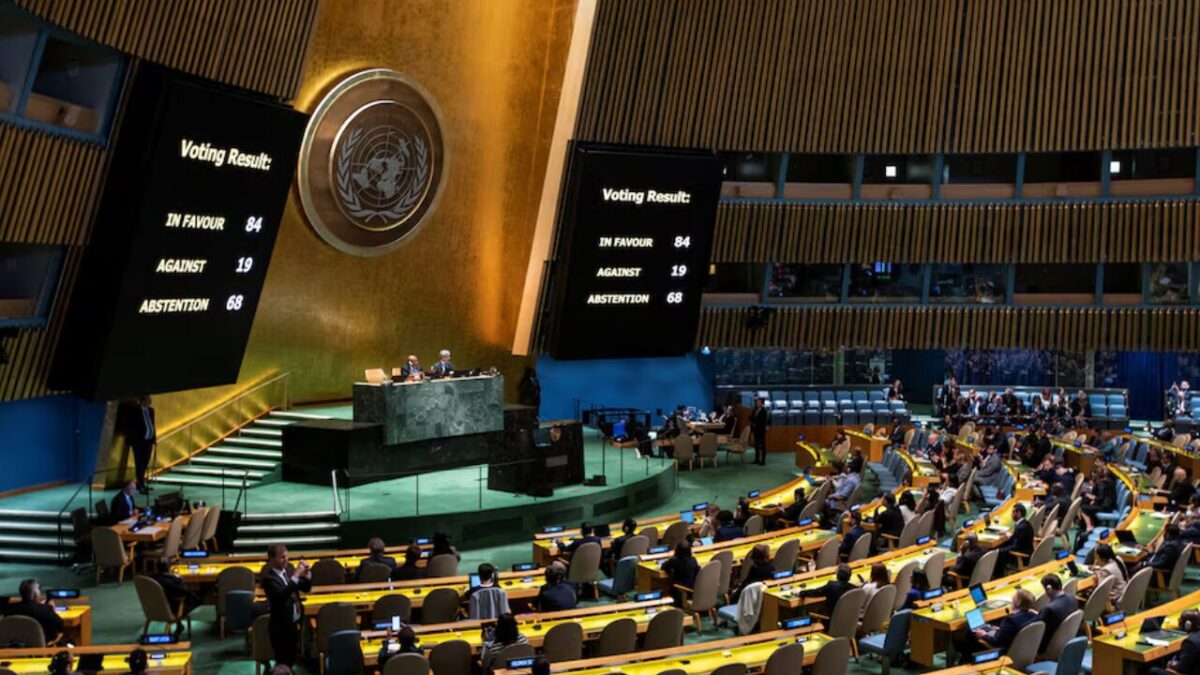The United Nations General Assembly declared July 11 as an international day of remembrance for the 1995 Srebrenica genocide in a resolution passed on Thursday, despite strong opposition from Serbia and Bosnian Serbs.
The massacre of approximately 8,000 Bosnian Muslim men and boys in 1995, after the U.N. safe zone of Srebrenica was overrun by Bosnian Serb forces, occurred during the Balkan wars that followed the breakup of Yugoslavia. It was considered Europe’s worst atrocity since World War II.
The resolution, initiated by Germany, Rwanda, and a cross-regional core group of 17 member states, including the United States, was approved by a simple majority of 84 votes in the 193-member General Assembly under its Culture of Peace agenda.
The resolution “decides to designate 11 July as the International Day of Reflection and Commemoration of the 1995 Genocide in Srebrenica, to be observed annually.”
“Our initiative is about honoring the memory of the victims and supporting the survivors who continue to live with the scars of that fateful time,” said Antje Leendertse, Germany’s Permanent Representative at the U.N., during the plenary session.
Serbia and Bosnian Serbs, who deny that the massacre constituted genocide, argue that the resolution brands Serbia as a “genocidal nation,” although this is not mentioned in the text.
Serbian President Aleksandar Vucic called on member states to vote against the resolution, stating it was “highly politicized” and would not contribute to reconciliation in Bosnia and the region but rather open a Pandora’s box.
“Divisions will become deeper and deeper; the resolution will cause instability in the region,” Vucic said.
Leendertse emphasized that the resolution was not directed against Serbia. She noted that Montenegro’s amendments, which stated that the crime of genocide is individualized and cannot be attributed to any specific group, were included in the resolution to address concerns from Serbia.





